
Storm Battered Turkmenabat Left to Its Fate
04.05.2020
Over a month has passed since a hurricane battered the eastern region of Turkmenistan on May 27. Dozens of families are mourning their loved ones whose lives were cut short by poles, walls, and roofs felled or torn off by the wind, while thousands of homes and properties in Turkmenabat and nearby villages were damaged. Sadly, it is extremely difficult to obtain information about the dead, to find out their names and the circumstances of their deaths – local people are afraid to speak out, as they might be made to pay for it. Hundreds of people are still being treated for physical injuries and mental problems caused by the stress of the hurricane and anxiety about how everything can be restored. Turkmen.news correspondent Oguljan Tairova reports on life in Turkmenabat one month after the hurricane.

When this type of natural disaster occurs in any other country, the government immediately swings into action to restore homes and infrastructure, supply food, medicines, and other essentials, help bereaved families to organize funerals, and provide material aid. The citizens of other regions mobilize as well: some help with clothes, others with household items; volunteers put out the call to raise funds on social media…
We don’t have to look far to find an example. In January this year there was a damaging earthquake in eastern Turkey, while the hurricane that struck Turkmenistan also hit Uzbekistan’s Bukhara region. In both countries the authorities reacted as they should, instantaneously. This did not happen in the land of Arkadag, where the slogan “The State for the People” has been elevated to the level of state policy. Life has shown that the expression remains on paper or, rather, on banners.
Instead of providing help, central and regional powers abandoned the residents of the second most populous region to the aftermath of the hurricane. Building materials immediately shot up in price on the markets and there was nothing to actually buy them with – ATMs did not work because of power cuts and lack of cash. Grocery stores remained closed for several days, while market prices for bread, drinking water, and other essentials multiplied several times over.

What would it have cost Gurbanguly Berdimuhamedov to follow the example of his Uzbek counterpart and fly to Lebap the next day? To show that the authorities are at your side and will not abandon you to face misfortune alone. No, nothing of the kind happened – either a day after the disaster or a month.
The authorities are still trying to pretend that there is no emergency in Lebap, nor has there been. They must think that if they have not responded already, it would be shameful to do so now: people will think they are acting under pressure from the independent media or demonstrators abroad, so it is better to stay the course. But it is the silence and lack of assistance that is angering the city’s residents most of all: people don’t understand why they have been abandoned by their authorities and who, if not the president, the guarantor of the constitution, should help them.
The disaster showed that two aspects of this article have been violated. First: people did not receive credible information about the approaching storm, as the authorities withheld it, which led to grave consequences, even fatalities. Second: victims have received no compensation for damage to either their health or property.

Even though a month has passed since the hurricane, help is still desperately needed. Residents of the Zheleznodorozhnyy district have even been out to protest at the failure to clean the drains, which has resulted in an unbearable stench from manholes. Houses near Gorogly Park and the Green Bazaar still have daily cuts to power and water supplies. On May 27, there was no electricity in the city from around 8.00 in the evening until 3.00 in the morning.
Some 35% of houses and buildings on the central Bitarap Turkmenistan Avenue (formerly Kostandov Street) have damaged roofs, while on nearby S. Niyazov Street it’s around 20%. The situation is even worse in other parts of the city, as the local authorities are restoring the “prestigious” streets first. Money is withheld from the wages of public sector employees to pay for repairs to schools and kindergartens, even though the employees themselves badly need money to repair their own homes.
As well as the above, the authorities – local and central – failed to provide humanitarian aid and, instead of bringing in adequate supplies of food at affordable prices, they are providing people in the affected areas with limited food rations, as though in wartime. State shop No. 2, near the Green Bazaar, is selling one chicken leg per family per month! People wonder what they can make from it or whether it’s enough just to look at it. Or 5 kg of flour per month, which makes 166 g per day. But you won’t get even this meager ration if you refuse to buy unwanted goods, for example, metal lids for bottling jars or a bottle of locally produced sickly sweet colored water. Other restrictions include a bottle of Ahal cotton oil or Russian Korona Izobiliya for 12 manats or five liters of cotton oil decanted in the shop. All sorts of tricks are tried with the latter: for example, the shop assistant squeezes a five-liter plastic bottle so that it is 700-800 ml short, but you don’t notice until you get home and pour the oil into another container. Another trick is for the shop assistant to “forget” to put the “tie-in deal” into the bag – 400 g of rice or the horrible drink or the jar lids. It’s supposed to be a rich country, a second Kuwait…

People help each other as best they can; when people meet or talk on the telephone, it’s now customary to ask first how they are feeling, and only then to get down to the matter in hand. Over the past month the people of Turkmenabat have learnt one thing: they cannot rely on the authorities. They won’t help them or save them, and they are certainly not there for anyone affected by misfortune. These authorities work only to conceal the negative, to keep it out of sight, as they are doing with the hurricane-damaged houses near the president’s residence at the intersection of Pushkin and Kostandov streets. There used to be a display panel there, held up by metal posts, showing the prosperity of the people and the success of the country. It also performed another function – hiding poor single-story houses. This is done in many Turkmen towns visited by the president. Cover it up and Arkadag won’t see the poverty. But the hurricane swept away the old hoarding as though nature itself opposed the deception. Buildings which provided a screen were also damaged. A new brick wall is now being erected, where a new banner will be hung ahead of Berdimuhamedov’s visit, provisionally set for June 4.
It did not occur to any of the wealthy people in authority to give the bricks to residents to repair their homes.
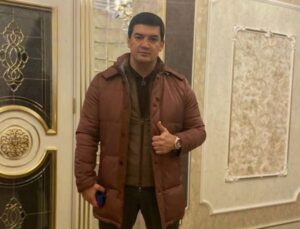
Upmarket Bar in Ashgabat Closed After Brawls Involving President’s Cousins
08.04.2024
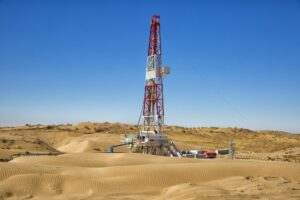
Petrofac Back in Favour in Turkmenistan After Falling Foul of Berdimuhamedov
18.03.2024
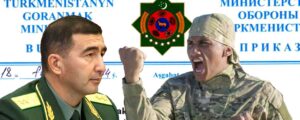
Turkmenistan’s Defense Minister Deprived Officers From Housing Entitlement Despite Widespread Resignations
28.02.2024
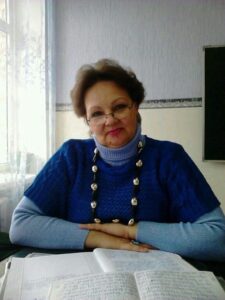
Murder and Suicide at Troubled Turkmen School
28.02.2024
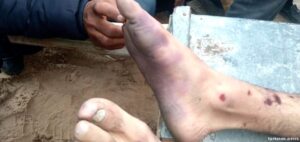
Turkmen Prosecutor’s Office Claims Baloch Detainee’s Fatal Wounds Were Self-Inflicted
01.02.2024
Tell us!
Add comment
your e-mail will not be published